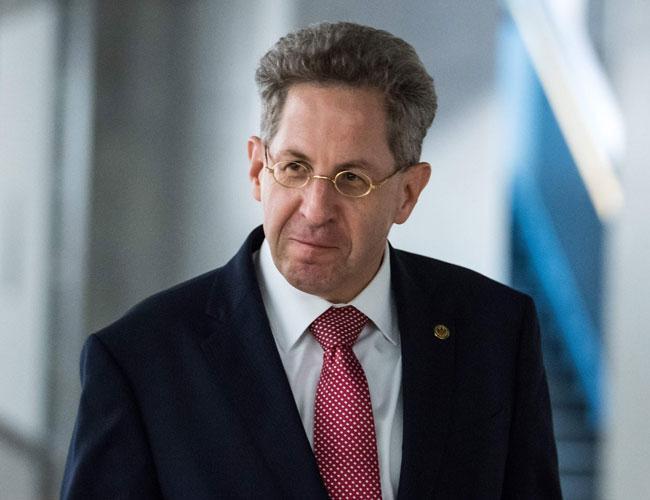
Germany’s Social Democrats on Sept. 13 demanded the resignation of the country’s top spy, as he faced fresh accusations over his allegedly proximity to the far-right party AfD.
Hans-Georg Maassen, who heads Germany’s domestic intelligence agency BfV, has been caught in the headlights after he directly contradicted Chancellor Angela Merkel in his assessment of far-right protests in the city of Chemnitz.
Merkel had firmly condemned a “hunt against foreigners” backed by videos circulating on social media, but Maassen had questioned the authenticity of at least one of the clips.
For critics, Maassen’s claim played into the hands of the far-right.
Questions were also raised on his intentions as Maassen had previously been accused of meeting with AfD politicians to give them advice on how to avoid being placed under official surveillance -- allegations that he had rejected.
On Sept. 13, he appeared at first to have saved his job as his direct boss, Interior Minister Horst Seehofer, gave him a ringing endorsement in parliament.
But just hours later, an MP of the AfD told public television ARD Maassen gave the group official figures on Islamists before they were published, sparking a new furor.
The claim was immediately rejected by the BfV, which said its boss holds talks with members of all parties in parliament at the request of the interior ministry and did not pass on information illegally.
But the Social Democratic Party (SPD), junior partners in Merkel’s coalition, said Maassen’s position had become untenable.
Lars Klingbeil, SPD general secretary, said: “It’s absolutely clear to the SPD leadership that Maassen has to go. Merkel must take action,” he tweeted.
Maassen in August 2012 took over at the Federal Office for the Protection of the Constitution (BfV) after his predecessor was forced to quit as it emerged the service had shredded files on suspects of the deadly neo-Nazi cell NSU.
As BfV chief, Maassen leads an agency charged with collecting and evaluating information on efforts to harm the democratic order or which jeopardize Germany’s interests.
But among his key tasks following the NSU scandal was also to restore public confidence in an institution accused of being too lax with the far-right threat and too heavy-handed on extreme left activism.
The latest episodes with the AfD and the far-right has therefore reopened uncomfortable questions over the service’s neutrality.
Maassen, a bespectacled 55-year-old, faced a grilling by two parliamentary committees on Wednesday, before Seehofer told parliament Sept. 13 emphatically that Maassen “continues to have my trust in him” as BfV chief.
He argued that Maassen had “a convincing position against the right-wing radicalism.”
But the controversy over Maassen refused to go away as AfD MP Stephan Brandner told public broadcaster ARD that the spy chief on June 13 handed him figures from his agency’s latest annual report “that had not been published.”
“We spoke about different figures that were in the report,” said Brandner, adding that the data was related to Islamists deemed dangerous by the service as well as the agency’s budget.
The BfV published its report five weeks later.
Rejecting the ARD report, a BfV spokesman said: “The report gives the impression that information or documents have been passed on illegally. That is of course not the case.”
The SPD warned its coalition partner, Merkel’s center-right bloc, that it was time to let Maassen go.
Raising the stakes, the leader of the SPD’s youth wing, Kevin Kuehnert said that the scandal could threaten the survival of the coalition itself.
“If the BfV president stays in his job, then the SPD can no longer keep working in the government,” he told Spiegel Online.